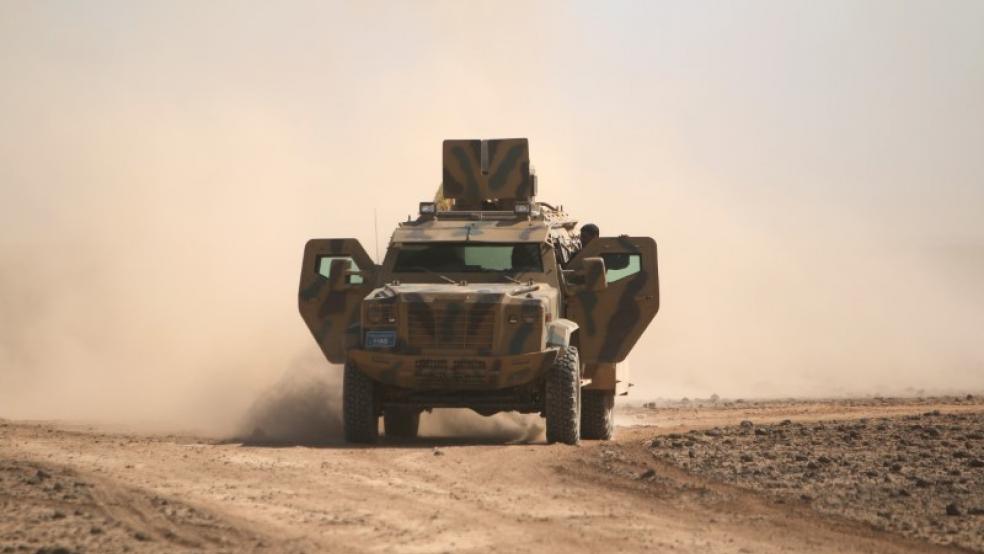WASHINGTON (Reuters) - The United States was relegated to the sidelines of the Syrian war on Friday as an all-out assault by Syrian government and Russian forces on opposition-held Aleppo threatened to unleash a new refugee wave and drive U.S.-backed rebels into the ranks of al Qaeda’s Syrian branch, U.S. officials and experts said.
Moscow’s direct participation in the offensive left fading hope for U.S.-Russian peace efforts, raising the likelihood that U.S. President Barack Obama’s successor will inherit a worsening conflict.Entering its sixth year, the Syrian civil war already has left some 250,000 people dead, uprooted more than 11 million and provided a base for Islamic State to launch and inspire attacks in the West."For the next president on Day One, this becomes the problem from hell," said Frederic Hof, a former Obama adviser on Syria who is now at the Atlantic Council think tank. "It’s a problem that’s going to persist in one way or another throughout the first term of the next president and probably beyond."A U.S. official suggested White House plans to keep Syrian chaos under control as Obama leaves office have been upended."It was hoped that they could turn over a simmering mess to the next president," said a U.S. official. "But what happened was that the simmering mess blew up and now they are going to have to figure out what to do."U.S. officials, speaking on condition of anonymity, said that Russian aircraft, long-range artillery and special forces advisers were directly participating with Syrian government forces in the drive to conquer eastern Aleppo, the largest urban stronghold of the U.S.-backed moderate opposition.Shiite militiamen from Lebanon, Iraq and Afghanistan also were involved in the assault on the devastated enclave, where an estimated 250,000 civilians were suffering the most intense airstrikes of the war, they said."The Russians are actively participating in the current offensive in Aleppo," said one U.S. official. "It appears to be a no-holds barred attempt to crush the opposition." Russian aircraft were flying sorties at the same rate – about 40 per day - as they were before Washington and Moscow negotiated a failed ceasefire between the Syria government and opposition forces in February, the officials said.Some U.S. intelligence officials believe that Russian President Vladimir Putin is taking advantage of Obama’s refusal to intervene militarily in Syria and his lame duck status to seize as much territory as possible before the new U.S. president takes office.These officials argue that Russia has not sincerely engaged in peace-making efforts and that Putin aims to weaken the opposition as rapidly as possible, a goal in which he is gradually succeeding.Damascus announced the offensive on Thursday as Secretary of State John Kerry and Russian counterpart Sergei Lavrov failed to salvage a ceasefire that collapsed on Monday. The ceasefire was supposed to lead to U.S.-Russian cooperation on airstrikes against Islamic State and al Qaeda’s Syrian affiliate, formerly known as the Nusra Front.OBAMA'S OPTIONSWhat course Obama will now take remained unclear."There doesn’t seem to be a Plan B right now," Hof said.Obama has sought to restrict U.S. involvement in Syria, repeatedly rejecting proposals by advisers for actions such as establishing a no-fly zone or arming the moderate opposition fighting to topple President Bashar Assad."One of the things that haunts me the most was our failure to ask ourselves about the consequences of inaction," said one former senior official involved in Syria policy. "We were always focused on the consequences of action ... But we should have also considered how doing nothing for several years might have an impact on U.S. credibility and the conflict more broadly."Obama has limited the U.S. role to supporting groups fighting Islamic State in northeastern Syria. He has pursued talks with Russia, which intervened on Assad’s behalf in September 2015, on a peace accord between U.S.-backed moderate rebels and Damascus.Obama, however, no longer can count on securing a ceasefire that will keep a lid on the crisis until his successor is sworn-in on Jan. 20, experts said.Charles Lister of the Middle East Institute think tank said he doubted that Obama would adopt a more robust policy."Given the posture the Obama administration has developed with regards to how it faces the war in Syria, I don’t see it shifting the strategy," he said. "That would be the most extraordinary foreign policy shift in the last eight years."Obama, however, faces the prospect of a deepening humanitarian disaster, officials and experts said.The fall of Aleppo could unleash a new wave of migrants fleeing toward Europe, which has been struggling since last year to accommodate more than 1 million refugees.Moreover, U.S.-backed rebels, dismayed over what they saw as Obama’s abandonment of Aleppo, could begin joining al Qaeda’s Syrian branch. It is widely regarded as the most effective opposition group and has vehemently rejected a negotiated settlement with Assad, U.S. officials and experts said.Lister, who maintains contacts with rebels inside Syria, said opposition leaders are growing disillusioned with U.S. efforts to negotiate a diplomatic solution with Assad's main military backer."Things are deteriorating so quickly now. The U.S. is losing leverage on the ground every week," he said. (Additional reporting by Phil Stewart and David Rohde. Editing by Cynthia Osterman)As Syria cease-fire fails, Obama may leave successor 'problem from hell'

RODI SAID



